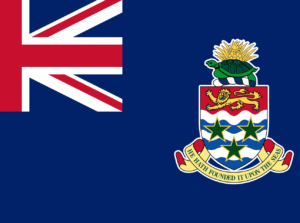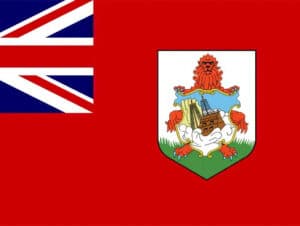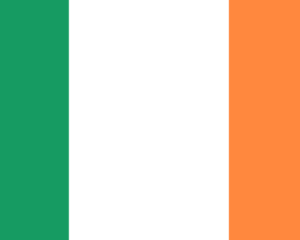Tax haven countries are nations that offer low or zero taxes on certain types of income, making them attractive to businesses and individuals looking to reduce their tax bills. These countries often serve as offshore financial centers, providing foreign investors with opportunities to protect financial assets and offshore income. Most tax haven countries list show that their appeal is not just for tax benefits but also for financial privacy.
While some see tax havens as a way to encourage competition and attract global investments, critics argue they contribute to tax evasion and reduce public revenues. Their strict secrecy laws make it hard to track the financial activities of companies and individuals, which raises concerns about inequality and transparency. As global organizations push for reforms, the role of major tax havens in the international financial system may face significant changes.
This guide will cover everything you need to know about tax haven countries, from their benefits to their disadvantages, as well as some of the best tax haven countries to protect your assets.
Here is more of what to expect:
What are tax haven countries?

This makes them attractive destinations for individuals and corporations looking to reduce their tax burdens legally. The specific characteristics that define a tax haven vary, but commonly include:
Low or zero taxes
One of the main attributes of tax havens is that they often have no personal income taxes, corporate taxes, capital gains taxes, or low tax rates in these categories.
Financial secrecy
Tax haves also provide high levels of privacy and secrecy for account holders and companies, making it difficult for foreign tax authorities to obtain information about their citizens’ or corporations’ offshore accounts or investments.
Lack of transparency
A traditional tax haven usually doesn’t share financial information with other countries’ tax authorities, hindering efforts to combat tax evasion and avoidance.
Limited regulation
Tax haven countries often have relaxed regulatory environments, making it easier for foreign entities to establish themselves without the bureaucratic hurdles in more regulated countries.
No requirement for economic substance
In many cases, companies registered in tax havens are not required to have a physical presence, significant economic activity, or real offices in the jurisdiction.
How do tax haven governments earn money?
While tax havens often have little or no direct taxation on certain income, they are not entirely tax-free. They use targeted taxation policies, fees, and indirect taxes to sustain their economies while maintaining their attractiveness as low-tax jurisdictions.
These are some of the ways these countries manage to balance financial competitiveness with revenue generation.
- Tax havens rely on revenue from financial services, which means they earn money by charging fees for company registration, banking, and asset management services provided to wealthy individuals and corporations.
- Low-tax countries have specialized legal frameworks that attract international wealth by offering low or no taxes, strong confidentiality laws, and easy company incorporation.
- Tourism and real estate are other ways governments can make money and offer low taxes. High-end tourism and luxury real estate investments by wealthy individuals boost local economies and generate revenue.
- Tax havens also rely heavily on global financial integration, meaning they become hubs for international banking, trade agreements, and investments, integrating deeply into the global economy.
- Tax havens make money by attracting multinational corporations, which bring profits and pay fees, helping create local jobs.
- Stable governments and neutral policies make tax havens attractive and secure for global investors.
In the section below, we’ll take you through the biggest tax havens in the world in 2025.
Top 12 Tax Haven Countries in the World
International bodies like the Organization for Economic Co-operation and Development (OECD) and the European Union have been working to increase transparency and reduce the appeal of tax havens through various initiatives and blacklists. Regardless, jurisdictions consistently rank high due to their favorable tax regimes and financial secrecy laws while trying to implement more inclusive laws.
Here are 12 of the world’s leading tax havens:
 1. The Cayman Islands
1. The Cayman Islands
Topping our tax haven countries list is the Cayman Islands, a British Overseas Territory located in the Caribbean. Comprising three islands, the territory is widely considered one of the world’s most famous tax havens due to its lack of direct Caribbean taxes, which include income, corporate, capital gains, inheritance, or withholding taxes. It’s an attractive destination for foreign capital, particularly from hedge funds.
The jurisdiction is well-known for its strict privacy laws, making it challenging to determine the real ownership of accounts and assets. Additionally, its advanced financial services industry provides international clients a wide range of banking, investment, and insurance products.
Despite facing international pressure to change its practices, the Cayman Islands remains a popular tax haven. It offers a combination of financial secrecy, a strong economic environment, and favorable legal conditions for offshore entities.
 2. Switzerland
2. Switzerland
Switzerland is well-known for its banking secrecy and reputation as a tax haven, although it has made significant efforts to align with international transparency standards. Despite these changes, it remains a popular choice for wealthy individuals and corporations seeking to minimize their tax obligations.
Switzerland charges an income tax ranging from 0% to 11.5% at the federal level. The corporate tax rate is 8.5% federally, but total rates can reach 12% to 24% with local taxes. It does not charge capital gains tax on private assets, but capital gains on real estate are taxed. Additionally, Switzerland does not have an inheritance tax at the federal level, and wealth tax rates are generally low, ranging from 0.1% to 1%, depending on the canton.
Switzerland’s banking system offers wealth management and tax optimization services, making it attractive for reducing tax liabilities. Its political and economic stability and favorable tax treaties continue to draw foreign investment.
 3. Luxembourg
3. Luxembourg
Luxembourg is a small country in Europe surrounded by Belgium, France, and Germany. Luxembourg is a leading player in the global financial sector thanks to its favorable tax laws for holding companies and low corporate taxes. Luxembourg charges a corporate income tax of 17% for profits exceeding €200,001, with lower rates for smaller profits. It also has a wealth tax on net wealth above a certain amount, but the rates only range from 0.5% to 1%.
Many multinational corporations choose to base their European operations in Luxembourg because of these benefits. The country does not charge capital gains tax for companies, which helps reduce tax liabilities. However, it has been involved in several tax avoidance scandals, highlighting its role in helping companies shift profits and reduce taxes through complex financial structures.
Despite efforts to reduce these avoidances, Luxembourg remains a popular tax haven due to its great financial infrastructure and emphasis on privacy and discretion for banking and investment activities.
 4. Bermuda
4. Bermuda
Bermuda is a British Overseas Territory situated in the North Atlantic Ocean. It is renowned for having a zero corporate income tax rate and no personal income taxes, making it a popular destination for multinational corporations and ultra-wealthy individuals.
Bermuda does charge a payroll tax on wages, which ranges from 0.5% to 8.75%, depending on the payroll size. It also imposes stamp duty on certain transactions, such as the transfer of property and insurance premium taxes for companies in the insurance and reinsurance sectors.
Bermuda is loved by companies in the insurance and reinsurance sectors due to its favorable regulatory environment and expertise. Bermuda’s legal system is based on English common law, which provides a familiar and reliable framework for international business operations. Moreover, the island is known for its high degree of political and economic stability, which further adds to its reputation as a secure place to hold and expand wealth.
 5. Ireland
5. Ireland
Ireland is known for its low corporate tax rate of 12.5% on trading income, which is one of the lowest in the European Union. This is also known as capital gains tax, which is why companies such as Google, Microsoft, and Apple are incorporated there.
This has made it a popular destination for tech giants and pharmaceutical companies looking to benefit from the favorable tax regime. Ireland’s tax laws allow companies to use advanced strategies like the “Double Irish” and the “Dutch Sandwich” to shift profits to lower-tax jurisdictions. The Double Irish involves routing profits through Irish subsidiaries to reduce tax burdens, while the Dutch Sandwich adds a layer involving Dutch companies to further reduce taxes by taking advantage of international tax treaties and loopholes.
While Ireland complies with EU regulations and international transparency standards, its tax policies have been criticized for enabling tax avoidance on a global scale.
 6. Singapore
6. Singapore
Singapore has become a prominent global financial hub, attracting businesses and affluent individuals with its advantageous tax rates, stable political environment, and efficient legal system.
The country offers a relatively low corporate tax rate of 17%, which is competitive compared to other countries worldwide. Additionally, Singapore provides several tax incentives for investment, innovation, and entrepreneurship, such as exemptions on income from qualifying startups. Its extensive network of double taxation treaties helps to prevent double taxation on income earned abroad, making it more appealing to international businesses.
Moreover, Singapore’s strict banking secrecy laws and advanced financial services sector provide a secure environment for asset protection and wealth management. Although Singapore has taken measures to increase transparency and combat money laundering, its combination of tax benefits and financial services remains attractive to global investors.
 7. Netherlands
7. Netherlands
The Netherlands is a well-known location for businesses to save money on taxes due to its tax-friendly policies that include bilateral tax treaties. These treaties make it easy for companies to invest internationally while paying minimal taxes.
The country is famous for its “Dutch Sandwich” arrangement, which allows for the strategic use of subsidiaries to shift profits and reduce taxation. The Netherlands charges a corporate tax rate of 25.8% (as of 2024), but there are lower rates for small businesses and certain tax incentives for innovation and research.
Although the Dutch government has implemented reforms to prevent abuse of its tax system, it remains a significant player in global tax planning. The Netherlands’ advanced financial infrastructure, strategic location in Europe, and reputation for innovation make it an attractive jurisdiction for international businesses.
 8. Panama
8. Panama
Panama gained worldwide attention when the “Panama Papers” were leaked. These papers showed how Panama’s banking system, loose rules, and offshore legal services were used to help people avoid taxes, launder money, and engage in financial crimes.
Panama offers a territorial tax system, meaning that income earned outside Panama by people or companies who live there is not taxed in Panama. This makes Panama attractive for people who want to protect their wealth from taxes. However, Panama charges a 5% tax rate on corporations for income generated locally.
Panama also has strict privacy laws, which makes it easy to set up offshore corporations, which further adds to its appeal. The country has tried to improve transparency after global pressure, but it remains a popular choice and a tax haven for those looking to protect their wealth and avoid taxes.
 9. Isle of Man
9. Isle of Man
The Isle of Man is a British Crown Dependency located in the Irish Sea. It is known for its attractive tax system, which includes zero corporate tax for most companies, no capital gains tax, and no inheritance tax. The personal income tax rates are also low, making it a popular place for businesses and individuals.
The Isle of Man has great control over its finances, making it a great place for international businesses, especially in industries like aviation, eGaming, and shipping. The Isle of Man has strong regulations and follows international tax rules, even though many non-residents use it to reduce taxes. However, the Isle of Man does charge a personal income tax rate of up to 20%.
 10. Hong Kong
10. Hong Kong
Hong Kong is a popular destination for international business and investment due to its simple and low tax regime, significant autonomy in fiscal matters, and role as a gateway to China.
The territory follows a territorial basis of taxation, where only income generated in Hong Kong is subject to tax, which is attractive to multinational corporations and entrepreneurs. Hong Kong offers a competitive corporate tax rate of 16.5% on profits, and it does not tax dividends, capital gains, or inheritance, making it a desirable location for tax advantages.
Despite efforts to align with international tax transparency standards, Hong Kong continues to be a favored destination for tax planning and investment.
 11. St. Kitts and Nevis
11. St. Kitts and Nevis
St. Kitts and Nevis is recognized as a tax haven due to its low taxes and the St. Kitts and Nevis citizenship by investment (CBI) program, which attracts wealthy individuals and businesses looking to reduce their tax burdens. The country does not impose personal income, capital gains, or inheritance taxes, making it a highly appealing destination for tax optimization.
The corporate tax rate is 33%, but certain industries enjoy tax exemptions and incentives. The absence of taxes on global income makes it particularly attractive for individuals with offshore income or financial assets.
St. Kitts and Nevis is known for its stable economy and financial services sector. Its banking system supports wealth management and offshore financial planning. With its long-standing economic and political stability reputation, the country continues attracting foreign investors.
 12. Antigua and Barbuda
12. Antigua and Barbuda
Antigua and Barbuda is one of the top Caribbean tax havens offering tax advantages and a popular Antigua and Barbuda CBI program. The nation does not charge personal income, capital gains, or wealth taxes, making it ideal for foreign investors and individuals looking to reduce tax liabilities.
Corporate tax rates are set at 25%, but exemptions and deductions are available for specific industries. Antigua and Barbuda’s tax-friendly environment and strategic location in the Caribbean make it an attractive offshore financial center.
The banking system provides privacy and financial services such as tax planning and asset protection. Combined with its stable political environment and economic growth, Antigua and Barbuda remains a major tax haven for those looking for a secure and efficient way to optimize taxes.
Tax Havens and their Taxes
Country | Corporate Tax Rate | Personal Income Tax | Other Taxes |
Cayman Islands | 0% | 0% | Licensing fees, import duties |
Switzerland | ~11.9% to 21.6% (varies by canton) | Up to 40% (progressive) | VAT at 7.7%, wealth tax in some cantons |
Luxembourg | ~24.94% (including municipal taxes) | Up to 42% (progressive) | VAT at 17%, wealth tax on corporate entities |
Bermuda | 0% | 0% | Payroll tax, customs duties, land tax |
Ireland | 12.5% (corporate trading income) | Up to 40% (progressive) | VAT at 23%, stamp duties on property |
Singapore | 17% (low, with exemptions) | Up to 22% (progressive) | GST (VAT) at 8%, exemptions on foreign income |
Netherlands | 19% (on income up to €200,000); 25.8% (above) | Up to 49.5% (progressive) | VAT at 21%, local property taxes |
Panama | 25% (on locally-sourced income) | (progressive) | VAT at 7%, import duties |
Isle of Man | 0% (standard) to 10% (some sectors) | 10-20% (progressive) | VAT at 20%, registration fees |
St. Kitts and Nevis | 33% (with exemptions for certain sectors) | 0% | Import duties, VAT at 17%, property taxes |
Hong Kong | 8.25% (first HK$2M); 16.5% (above) | Up to 17% (progressive) | No VAT or sales tax, stamp duties on property |
Antigua and Barbuda | 25% | 0% | VAT at 15%, property taxes, import duties |
Domestic, International, and Offshore Tax Havens- What's the difference?
Tax havens offer low or no taxes to attract businesses and individuals looking to reduce their tax bills. There are three main types: domestic, international, and offshore. Domestic tax havens are regions within a country that offer lower taxes. International tax havens are countries with low taxes that attract global businesses. Offshore tax havens provide tax benefits for foreign income and assets. Although these tax havens are popular for financial planning, they can be controversial.
Here’s a quick overview of each type.
Type of Tax Haven | Definition | Examples | Key Features |
Domestic Tax Havens | Regions within a country offering favorable tax policies to attract businesses and individuals. | Delaware (USA), Nevada (USA), South Dakota (USA) | - Focused on reducing state or local taxes. |
International Tax Havens | Countries with low or no taxes attracting global businesses and individuals to establish operations. | Ireland, Luxembourg, Netherlands | - Often used for profit shifting by multinational corporations. |
Offshore Tax Havens | Jurisdictions offering tax advantages to non-residents for assets or income earned outside their borders. | Cayman Islands, Bermuda, Panama, Isle of Man | - Provide complete tax exemptions or minimal taxes for foreign income. |
Benefits of Tax Havens
 Lower tax burden
Lower tax burden
Tax havens usually impose low or no taxes on income, capital gains, corporate profits, or inheritance, significantly reducing the overall tax liability for businesses and individuals.
 Asset protection
Asset protection
Tax havens provide strong legal frameworks that protect assets from:
- Creditors
- Lawsuits
- Political instability
Trusts and foundations in tax havens are commonly used for estate planning and protecting generational wealth.
 Privacy and confidentiality
Privacy and confidentiality
Many tax havens implement strict banking and corporate secrecy laws to keep financial activities private and wealthy individuals and corporations can protect sensitive financial information from public disclosure.
 Business efficiency
Business efficiency
Tax havens simplify administrative and regulatory requirements for setting up and managing companies. Incorporation is often faster, less expensive, and requires minimal reporting.
 Wealth diversification
Wealth diversification
Holding wealth in multiple jurisdictions reduces risks tied to:
- Currency devaluation
- Economic downturns
- Political instability
 Global trade and investment opportunities
Global trade and investment opportunities
Tax havens are often hubs for international trade, banking, and investments. Businesses benefit from favorable trade agreements and access to international markets.
Disadvantages of Tax Havens

These are some of the disadvantages:
- Governments closely monitor offshore activities, which can lead to legal and regulatory risks. Not reporting offshore accounts or income can result in large fines or even criminal charges, as in the case of U.S. FATCA.
- Ethical concerns arise because using tax havens can hurt reputations. They are seen as places for unethical behavior, and critics say they let the rich and big companies avoid paying taxes, making regular people pay more.
- High costs for setting up and maintaining offshore accounts or businesses can eat into the money saved on taxes, with fees for registration, yearly renewals, and legal help, which can be too expensive for small businesses or individuals.
- Limited accessibility means tax havens are mainly for rich people and big companies, and smaller investors may not be able to meet the high requirements, like having large deposits or incomes.
- Lack of transparency makes it hard to get clear financial information from offshore accounts and increases the chance of being involved in scandals if the tax haven is accused of allowing illegal activities.
- Potential double taxation happens when income moved from a tax haven to another country gets taxed again, especially if there’s no agreement between the two countries to avoid it.
- The risk of financial mismanagement occurs when managing offshore companies becomes too complicated, leading to mistakes or reliance on others who may charge too much or mishandle funds.
How Can Global Citizen Solutions Help You?
Global Citizen Solutions is a boutique migration consultancy firm with years of experience delivering bespoke residence and citizenship by investment solutions for international families. With offices worldwide and an experienced, hands-on team, we have helped hundreds of clients worldwide acquire citizenship, residence visas, or homes while diversifying their portfolios with robust investments.
We guide you from start to finish, taking you beyond your citizenship or residency by investment application.

Frequently Asked Questions About Tax Haven Countries
What makes a country a tax haven?
A country is considered a tax haven if it offers foreign individuals and corporations significant tax advantages, such as very low or zero tax rates, along with monetary secrecy and the ability to set up entities without substantial economic activity in the jurisdiction. These countries often have laws in place that promote privacy and prevent the sharing of financial information with foreign tax authorities.
Is a tax haven legal?
Using tax havens can be legal, depending on the purpose and the way in which individuals or corporations utilize them. Many use tax havens for legal tax optimization and financial planning. However, tax havens can also be used for illegal activities such as tax evasion, money laundering, and hiding assets from creditors or law enforcement. The legality often hinges on compliance with the tax laws of the country in which the taxpayer resides or operates and international laws.
How does a tax haven affect the global economy?
Tax havens can have a mixed impact on the global economy. On one hand, they can stimulate investment in certain jurisdictions and allow companies to maximize profits, potentially leading to increased shareholder value and investment in other areas. On the other hand, they can lead to significant tax revenue losses for countries, undermining public services and contributing to inequality. They can also distort competition by giving advantages to entities that use tax havens over those that do not.
Can individuals use tax havens, or are they just for corporations?
Both individuals and corporations can use tax incentives through havens to achieve tax efficiency. Individuals might use modern corporate tax havens for estate planning, wealth management, or to protect assets, while corporations might use them to optimize their tax liabilities through strategic placement of subsidiaries or intellectual property. The specific benefits and mechanisms available can vary significantly between jurisdictions and between individual and corporate users.
What is being done to combat the use of tax havens for evasion?
International organizations and coalitions of countries, including the OECD and the G20, have been working to increase transparency and cooperation among tax havens and other countries. Initiatives like the Common Reporting Standard (CRS) and the Base Erosion and Profit Shifting (BEPS) project aim to curb tax avoidance, requiring participating countries to exchange information and implement measures to prevent profit shifting and erosion of the tax base. Additionally, many countries are enacting laws to require disclosure of offshore assets and are pursuing tax treaties that include provisions for information sharing.
What is the Financial Secrecy Index?
The Financial Secrecy Index (FSI) is a ranking system developed by the Tax Justice Network, an independent international network dedicated to high-level research, analysis, and advocacy in the area of international tax and financial regulation, including the role of tax havens. Launched in 2009, the FSI is designed to identify and rank jurisdictions according to their level of secrecy and the scale of their offshore financial activities.
How do tax haven countries differ from low-tax countries?
Tax haven countries typically offer zero or very minimal taxes and strict financial secrecy laws to attract foreign investors and offshore income. In contrast, low-tax countries have reduced but transparent tax rates, focusing on creating a business-friendly environment without the same level of secrecy. Tax havens often face scrutiny for enabling tax avoidance, while low-tax countries operate within standard global practices.

 1. The Cayman Islands
1. The Cayman Islands 2. Switzerland
2. Switzerland 3. Luxembourg
3. Luxembourg 4. Bermuda
4. Bermuda 5. Ireland
5. Ireland 6. Singapore
6. Singapore 10. Hong Kong
10. Hong Kong
